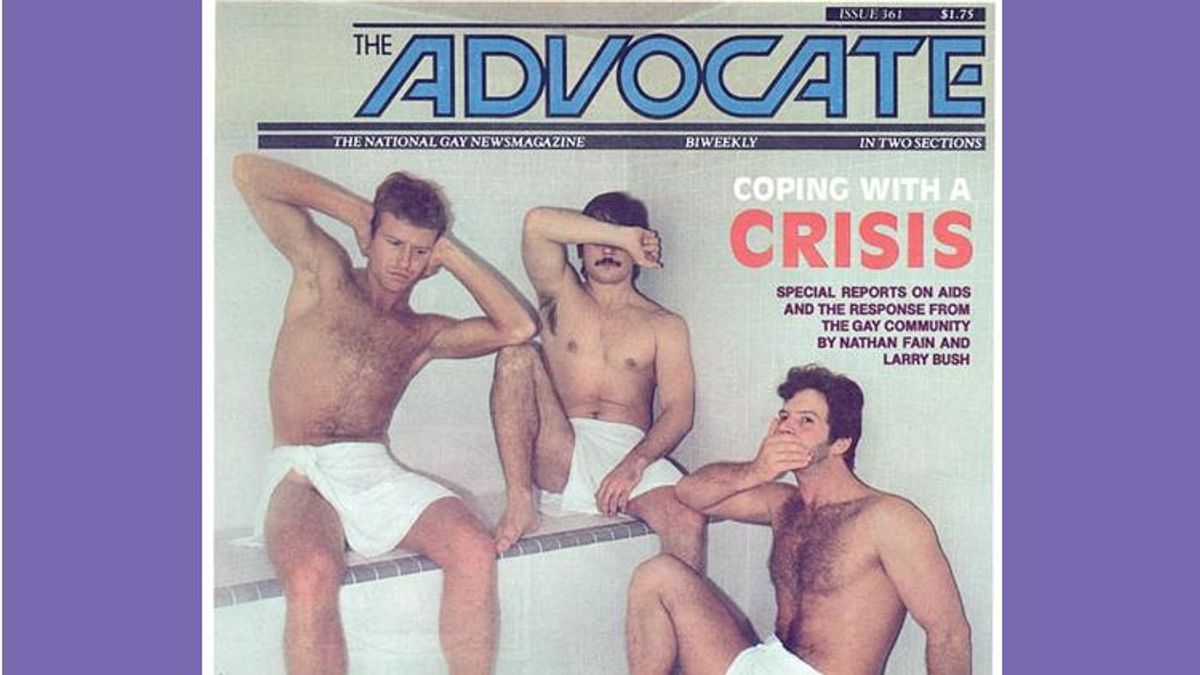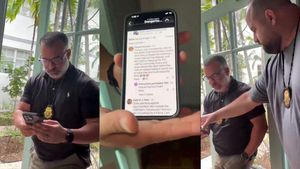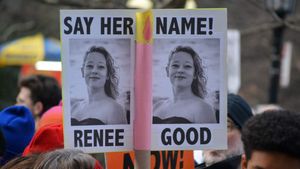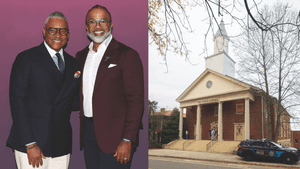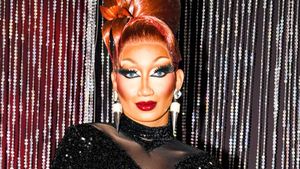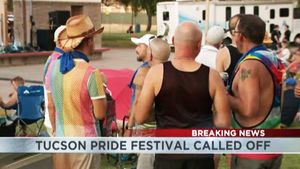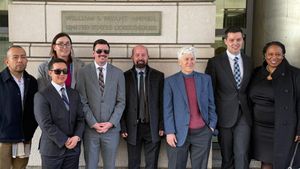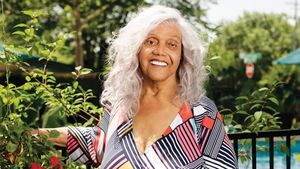That sentence, “I tested positive” inaugurated sorrowfully more than 30 years ago was a death sentence. Literally a death sentence. A sentence that when spoken, most often silently, ripped apart lives, relationships, families and communities — namely populations of gay men around the world. It was in every sense harrowing, depleting and destructive. Being HIV-positive was to have a virus with no cure, no elixir, no hope. Life stopping for gay men.
I tested positive for the virus.
Today, that sentence is sending shock waves, again, for a disease that also has no cure, no vaccine, no treatment options, but comes with morsels of hope. While the death rate from COVID-19 is far lower than it was for AIDS, it still causes a sense of panic, suffering and grief in lives, relationships, families and communities. Life stopping — for all of us.
In 2020, celebrities, politicians, athletes, neighbors, friends and strangers use social media to post about “testing positive.” It’s still a warning. It’s still spreads fear, still astonishes, still alienates, still empathizes. But the diagnosis of positive affects men, women, children, young, old, gay, straight, healthy, brittle, Chinese, Hispanic, European, African, Australian, and American — everyone is susceptible. It brings on a stigma, but one that is felt in a much broader community — every continent, every person.
The world is experiencing what it means and what it’s like to be positive, and in a profound way, gaining insight for what it was like in the early days for gay and bi men to be HIV-positive and to be faced with quarantine, horrible sickness and suffering, a sense of doom, and unimaginable loss of life. And to take a virus test and wait — with impatient and grueling anxiety for the results.
Being HIV-positive brought, and unfortunately still brings, a sense of shame. In the early days, being positive was not something that you would broadcast to the world. Before the digital bullhorns of Twitter or Instagram, you would not call, write or speak about it to your co-workers, distant friends, to your family. Being positive was the unkindest secret you could have. You were a pariah if you were revealed — forced to or by inevitable choice — any disclosure of the disease, outside of your community of gay friends, was a ticket to being excluded, exiled, and ex-communicated. When a positive diagnosis mutated to AIDS, it was a brutally unbearable way to live, a hopeless way to try and survive, and a God-awful way to die.
With the coronavirus, we see pictures of health care workers in portentous looking hazmat suits and protective gear, victims in isolation, being transported and confined in plastic tubes. Doctors making choices about who is strong enough to live, or too weak to save. Health care workers risking their lives to try and save others. We have all become infectors — washing hands, watching strangers warily, wiping down everything, whisking away from another’s cough or a sneeze. We are all suspicious of the person you see coming towards you, standing next to you, saying hi to you, walking past you.
In the late 1980s, health care workers donned hazmat suits and layered, shielding scrubs to treat AIDS victims — those who were willing to take care them. And those professionals and volunteers who did care for the suffering, for the Kaposi sarcoma, the pneumonias, the brain infections and other gruesome sicknesses, were silent heroes in an era of silence = death. Meals weren’t brought into rooms but slid under doors. Physicians, reluctantly playing God, choosing who would live and who would die. Those with AIDS were isolated, given their own floor, their own wards, separated and discriminated, avoided like the plague because it was a selective plague. Men with AIDS banished from society.
If you lived in major metropolitan areas of San Francisco, or Los Angeles or New York City, where the disease was prevalent, you washed your hands after you greeted a gay man. If a man, any man in the company of another man, coughed or sneezed near you, you panicked. If you rode a subway car, and the man sitting next to you had visible Kaposi lesions, you ran from the car, went home and showered, and made an appointment to see your doctor. You weren’t suspicious of the person coming toward you, standing next to you, saying hi to you, walking past you — unless it was a gay man.
It’s hard for anyone to know, imagine, or relate to what happened in the early days of the AIDS pandemic, unless they lived through it, studied it, or were alive when it happened and paid attention. With the COVID-19 pandemic, the world is getting some idea of what it was like for gay men who mostly suffered alone and out of the spotlight after they were dealt the virus of death.
The stories of the spread and impact of the coronavirus are disturbing, discomforting and dismaying. And the extent of infection wildly alarming. Those of us who are lucky enough not to be afflicted or affected will remember these times in life changing ways.
That’s what happened to those who survived the AIDS pandemic. Some celebrated life. Some moved on with life. Some lived — and still live with the guilt of surviving. Some continue to mourn. Some lost partners/husbands, close friends, casual friends, sex partners, family members, brothers and fathers. Each person who was touched by the specter of AIDS has never been the same.
And for most who continue to be traumatized, who lived and outlasted that time, and even for those who have HIV, a shuddering sense of remembrances, an unbearable reliving and unwanted reminders stab painfully when they see, read, or hear someone say “I’m positive,” or “I tested positive” for the coronavirus. And for those who survived AIDS of the 1980s, or who live with HIV, and who hear, see and read the words about COVID-19, “I’m negative,” or “I tested negative,” or “I don’t have the virus,” there is a sad, sorrowful, unrelenting sense of regret for what might have been if they too, had tested negative — for HIV.
It’s still early for us to gauge the potency and peril of the COVID-19 pandemic, which is very similar to what it must have felt like with AIDS in the mid-1980s. But we know now more than we did then, so we can only hope that our prospects for better acceptance and recovery are healthier than they were for the valiant gay men who succumbed to AIDS – the worst of four letter words – and who quietly and bravely initiated the very cruelest of three letter sentences: “I tested positive.” A phrase being repeated so often today.
John Casey is a PR professional and an adjunct professor at Wagner College in New York City, and a frequent columnist for The Advocate. Follow John on Twitter @johntcaseyjr.
